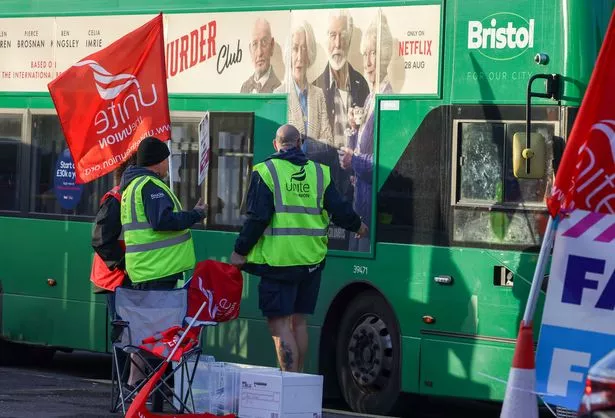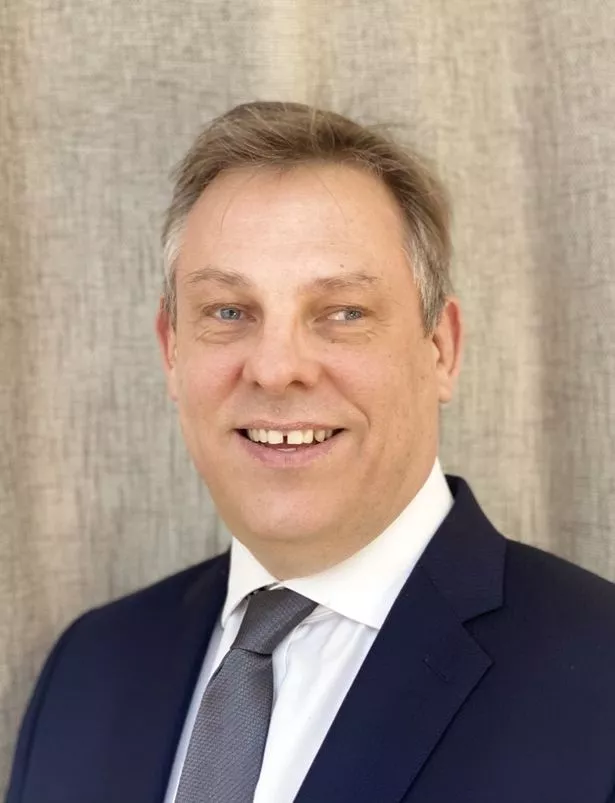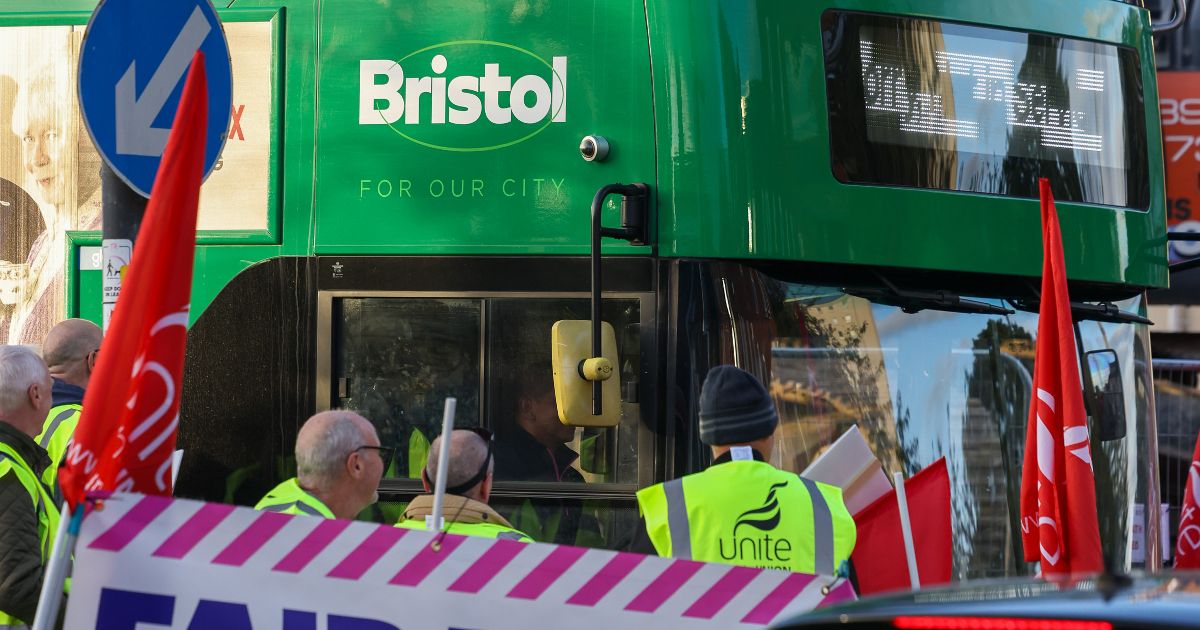‘We’re not talking about the pay rate, we’ve agreed on that’
13:44, 17 Sep 2025Updated 14:14, 17 Sep 2025
Striking bus drivers and bus company bosses are ‘so very close’ to an agreement, but a small but important detail in the two-year pay deal for Bristol’s bus drivers that has triggered this week’s four-day strike. Around 600 drivers with the Unite union at two depots walked out on Tuesday morning and won’t return to their drivers’ seats until Saturday morning, unless agreement can be reached.
The strike continued today, Wednesday, although First Bus boss Doug Claringbold claimed more drivers had returned to work compared to the first day of the strike on Tuesday. The members at the two depots – Hengrove and Lawrence Hill – were the only two of six First Bus depots in the West of England to refuse to accept the pay rise and structure on offer from First Bus bosses. And the striking drivers said that while they accepted the headline figures in the pay offer, it was the speed at which their wages would rise that was the bone of contention.
First Bus drivers in the West of England receive a basic pay – before overtime and extra pay for working different shifts – of £16 an hour. First Bus has agreed that this should go up to £17 an hour by the end of this financial year – next March – and next year up to £17.40, in 2026. That’s an increase of 4.7% this year and another 4% next year.
But First wants to stagger that increase – with a rise to £16.50 an hour first and then up to £17 an hour next year. Because the dispute has been rumbling on for months since the start of this year, it is actually the pay rise that the drivers should have received from April 1 this year.
So the first pay rise in those steps that the drivers will receive would be backdated to April 1, and it is the size of that first pay step that is the issue.
 First Bus drivers picket outside Lawrence Hill Depot in Bristol this morming, Tuesday 16 September 2025, on a proposed four day strike(Image: PAUL GILLIS / Reach PLC)
First Bus drivers picket outside Lawrence Hill Depot in Bristol this morming, Tuesday 16 September 2025, on a proposed four day strike(Image: PAUL GILLIS / Reach PLC)
Drivers at the two depots voted against First’s proposal, and argue that the bulk of the pay rise should be applied from April 1. Union leaders at Lawrence Hill said they estimated the difference in the two positions amounted to £300,000.
“Since the end of March we’ve been in pay discussions, and it’s been dragging on with dozens and dozens of meetings,” said Nick Rawlings, the union convenor at the two striking depots. “This dispute is slightly unusual because we’re not talking about the pay rate – we’ve reached an agreement on the pay rate. The bone of contention now is that our back pay is from the first pay day in April, we’re now in the middle of September, and the company are offering us 50 per cent of the value of the rise.
READ MORE: Drivers and bosses apologise to Bristol on day one of bus strikeREAD MORE: Bristol bus strike Day 2 – LIVE updates
“So that is really the only bone of contention at the moment and we’re that close – it’s really frustrating,” he added. “The 8.7 per cent is divided up into chunks. It’s their money at the end of the day. We’re almost there but not quite.”
Doug Claringbold, the managing director of First, said describing it as ‘back pay’ was ‘a bit disingenuous’, but acknowledged that the difference which had prompted the strike was the staggered way the pay rise is being implemented.
Mr Claringbold said the strike was ‘frustrating’. “Exactly the same offer has been accepted at all the other depots, and in fact the union recommended it be accepted at Hengrove and Lawrence Hill, but a small majority of drivers voted against it, so we have a strike,” said Mr Claringbold.
 Doug Claringbold, Managing Director for First West of England(Image: Western Daily Press)
Doug Claringbold, Managing Director for First West of England(Image: Western Daily Press)
Drivers and Unite’s union leaders have pointed to the profits made by First Bus nationally, but Mr Claringbold told Bristol Live the West of England was still ‘way short’ of the profit levels a regional bus company of First’s size in the region ‘should expect to make’.
“The drivers have to be realistic about what is sustainable to this business,” he said. “We’ve invested millions in improving the buses and the services, and they need to come to the table with some expectations that are sustainable,” he added.
